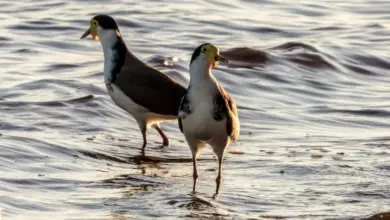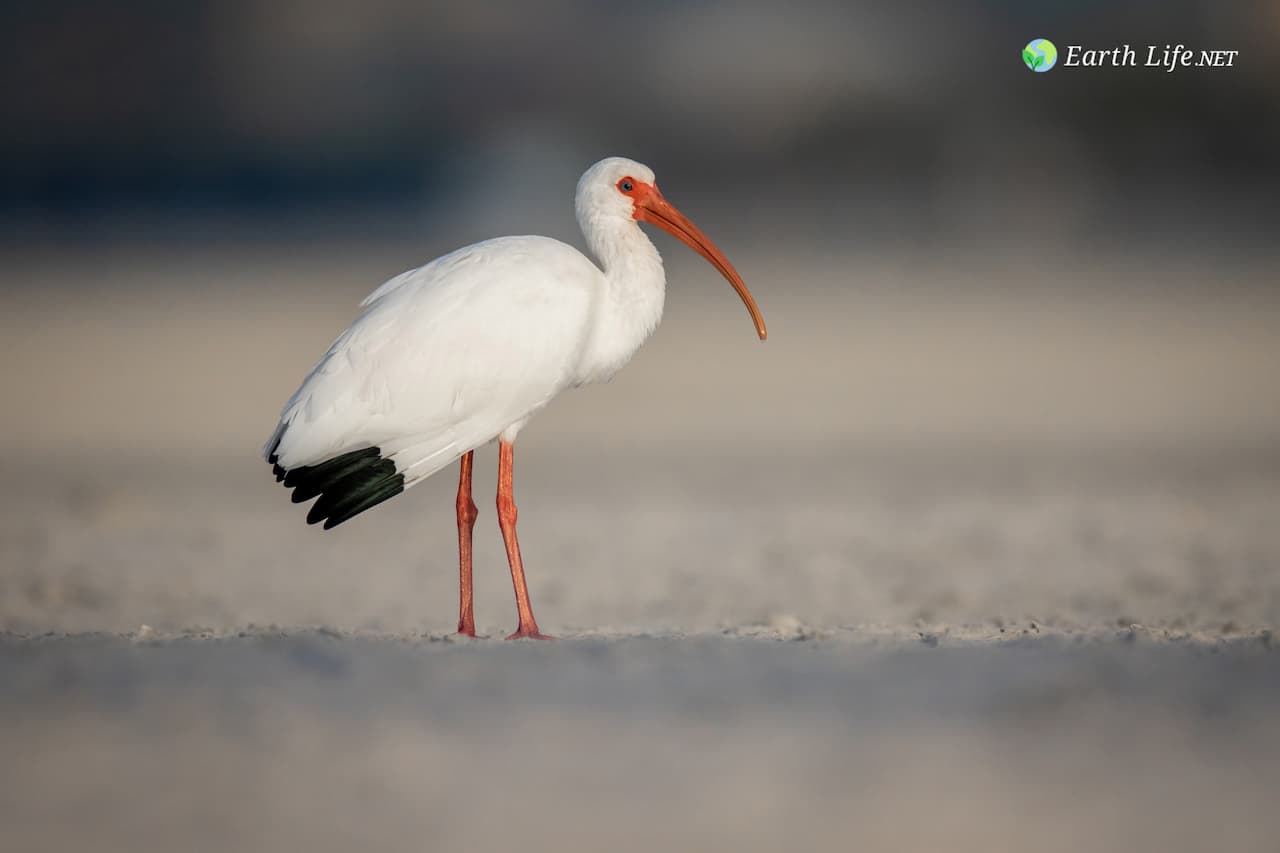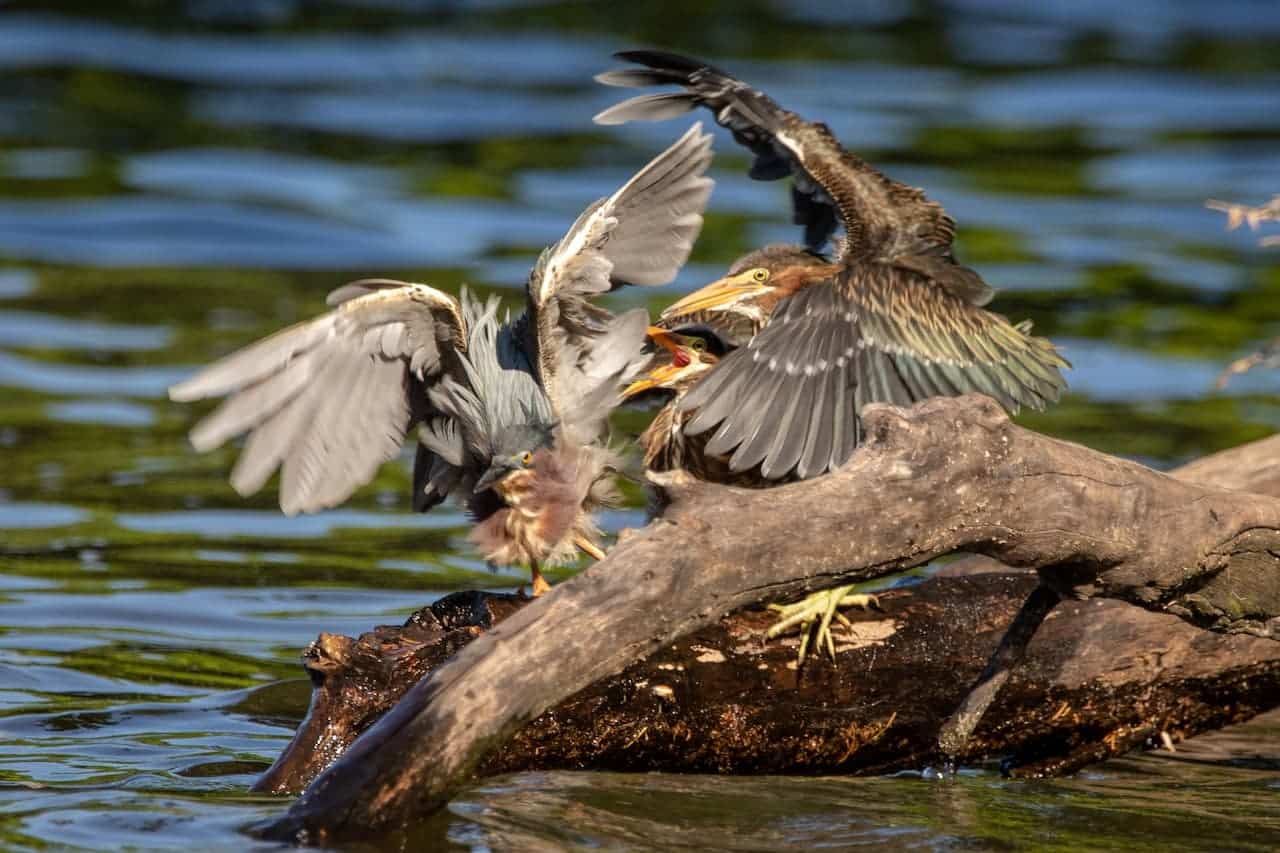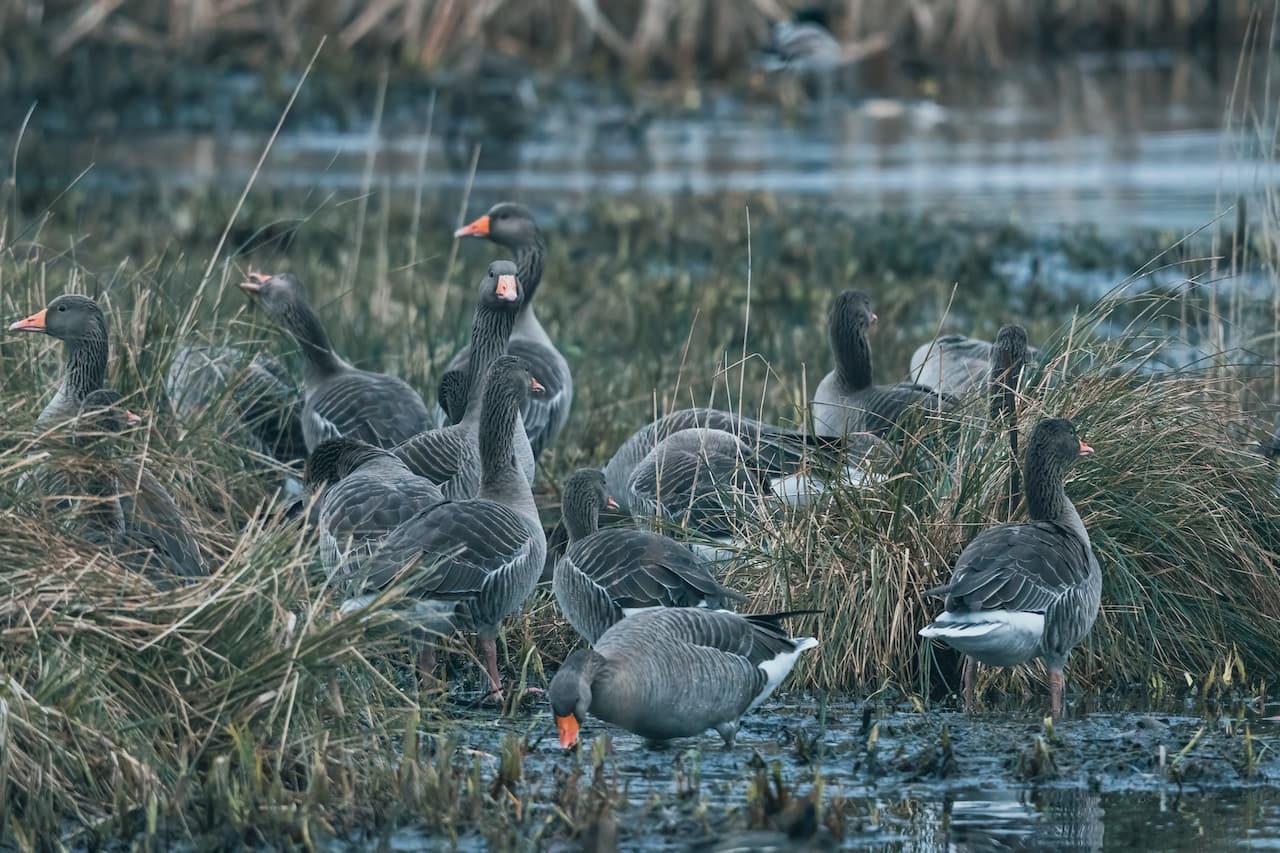Stiff-tailed Ducks
Stiff-tailed Ducks (Oxyura)
The stiff-tailed ducks are part of the Oxyurinae subfamily of ducks.
Description
All have, as their name implies, long stiff tail feathers, which are erected when the bird is at rest. All have relatively large swollen bills.
These are freshwater diving ducks. Their legs are set far back, making them awkward on land, so they rarely leave the water.
Their unusual displays involve drumming noises from inflatable throat-sacs, head throwing, and erecting short crests.
Plumage sequences are complicated, and aging is difficult.
Species
- Blue-billed Duck, Oxyura australis
- New Zealand Stiff-tailed Duck, Oxyura vantetsi (prehistoric)
- Ruddy Duck, Oxyura jamaicensis
- White-headed Duck, Oxyura leucocephala
- Maccoa Duck, Oxyura maccoa
- Argentine Blue-bill, Oxyura vittata – notable for possessing the longest penis of all vertebrates in relation to body length.
A fossil species from the Late Pliocene or Early Pleistocene of Jalisco (Mexico) was described as Oxyura zapatanima. It resembled a small Ruddy Duck or, even more, Argentine Blue-bill.
A larger Middle Pleistocene fossil form from the southwestern USA was described as Oxyura bessomi; it was probably quite close to the Ruddy Duck.
“Oxura” doksana from the Early Miocene of Dolnice (Czech Republic) cannot be assigned to any anatine subfamily with certainty.
References
- Worthy, Trevor H.; Tennyson, A.J.D.; Jones, C.; McNamara, J.A. and Douglas, B.J. (2007): Miocene waterfowl and other birds from central Otago, New Zealand. J. Syst. Palaeontol. 5(1): 1-39. doi:10.1017/S1477201906001957 (HTML abstract)
More Duck Resources
Diet / Feeding:
Ducks generally feed on larvae and pupae usually found under rocks, aquatic animals, plant material, seeds, small fish, snails and crabs.
Feeding Ducks …
We all enjoy ducks and many of us offer them food to encourage them to come over and stay around – and it works! Who doesn’t like an easy meal!
However, the foods that we traditionally feed them at local ponds are utterly unsuitable for them and are likely to cause health problems down the road. Also, there may be local laws against feeding this species of bird – so it’s best to check on that rather than facing consequences at a later stage.
- Foods that can be fed to Ducks, Geese and Swans to survive cold winters and remain healthy when food is scarce in their environment.
Please note that feeding ducks and geese makes them dependent on humans for food, which can result in starvation and possibly death when those feedings stop. If you decide to feed them, please limit the quantity to make sure that they maintain their natural ability to forage for food themselves – providing, of course, that natural food sources are available.





